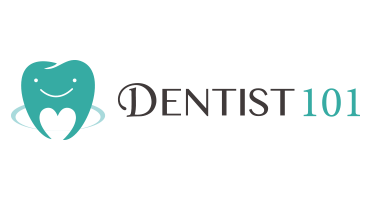They say you are what you eat. And in no better place can that be seen than in your teeth. That’s because many foods and beverages can cause plaque, which does serious damage your teeth. Plaque is a bacteria-filled sticky film that contributes to gum disease and tooth decay. After you eat a sugary snack or meal, the sugars cause the bacteria to release acids that attack tooth’s enamel. When the enamel breaks down, cavities can develop.
Cavities are the most common disease faced by people aged six to 19 years old, according to the Centers for Disease Control and Prevention. They cause complications like pain, chewing problems, and tooth abscesses. If you don’t brush or floss your teeth, your plaque will harden and turn into tartar. Tartar above the gums can lead to gingivitis, an early form of gum disease.
How can you prevent plaque from wreaking havoc on your mouth? Besides brushing your teeth at least twice a day and flossing and visiting a dentist regularly, try to avoid or limit the foods below.
1. Sour Candies:
It’s not surprising that candy is bad for your mouth. But sour candy contains more and different kinds of acids that are tougher on your teeth. Plus, because they’re chewy, they stick to your teeth for a longer time, so they’re more likely to cause decay. If you’re craving sweets, grab a square of chocolate instead, which you can chew quickly and wash away easily.
2. Bread:
Think twice as you walk down the supermarket bread aisle. When you chew bread, your saliva breaks down the starches into sugar. Now transformed into a gummy paste-like substance, the bread sticks to the crevices between teeth. And that can cause cavities. When you’re craving some carbs, aim for less-refined varieties like whole wheat. These contain less added sugars and aren’t as easily broken down.
3. Alcohol:
We all know that drinking alcohol isn’t exactly healthy. But did you realize that when you drink, you dry out your mouth? A dry mouth lacks saliva, which we need to keep our teeth healthy. Saliva prevents food from sticking to your teeth and washes away food particles. It even helps repair early signs of tooth decay, gum disease, and other oral infections. To help keep your mouth hydrated, drink plenty of water and use fluoride rinses and oral hydration solutions.
4. Citrus:
Oranges, grapefruits, and lemons are tasty as both fruits and juices, and are packed with vitamin C. But their acid content can erode enamel, making teeth more vulnerable to decay. Even squeezing a lemon or lime into water adds acid to a drink. Plus, acid from citrus can be bothersome to mouth sores. If you want to get a dose of their antioxidants and vitamins, eat and drink them in moderation at mealtime and rinse with water afterward.
5. Dried Fruits:
You likely assume that dried fruits are a healthy snack. That may be true, but many dried fruits — apricots, prunes, figs, and raisins, to name a few — are sticky. They get stuck and cling in the teeth and their crevices, leaving behind lots of sugar. If you do like to eat dried fruits, make sure you rinse your mouth with water, and then brush and floss after. And because they’re less concentrated with sugar, it is a better choice to eat the fresh versions instead!


